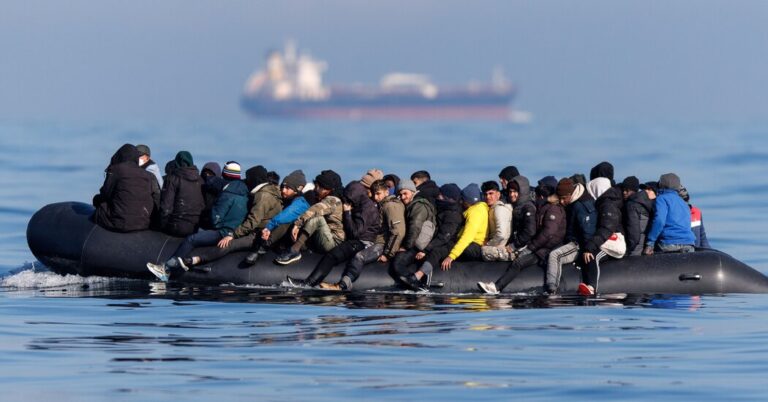Rwanda does not have to repay the hundreds of millions of pounds it received from Britain as part of a contentious policy aimed at sending migrants on a one-way flight to the Central African nation, two senior Rwandan government officials say.
As part of the deal, Britain was set to give Rwanda as much as about half a billion pounds in development funding in exchange for taking in the migrants. Britain’s independent public spending watchdog said in early March that the country had already paid Rwanda £220 million, about $280 million, even though no asylum seekers had been deported to the African nation.
Britain’s new prime minister, Keir Starmer, scrapped the plan after taking over as the country’s leader last week. The initiative had been devised by Britain’s previous government under the Conservative Party in an effort to deter unauthorized migrants from crossing the English Channel to Britain in unsafe boats.
One of the Rwandan officials, Alain Mukuralinda, the government’s deputy spokesman, said on Wednesday that the agreement did not include a reimbursement clause.
“The British decided to request cooperation for a long time, resulting in an agreement between the two countries that became a treaty,” he said in a video posted on social media by the Rwanda Broadcasting Agency. “Now, if you come and ask for cooperation and then withdraw, that’s your decision.”
“Good luck,” he added.
The other official, Doris Uwicyeza Picard, the coordinator of the migration partnership with Britain, said in a statement late Wednesday that her country was under “no obligation” to refund the money. She said Rwanda would remain in “constant discussions” with British officials about the next steps, though she did not elaborate on what those steps might be or when such discussions would begin.
As part of the agreement, either party can terminate the deal by giving notice to the other in writing. It was unclear on Thursday whether Britain had given that written notice, but Mr. Starmer scrapped the plan on Saturday, his first full day in office, and said it had been “dead and buried before it started.”
Yvette Cooper, Britain’s new home secretary, whose department oversees law enforcement, immigration and national security, told news outlets that her office would audit “all of the details around the money and the legislation and the processes” and that she would give further details to Parliament.
“We are auditing the whole scheme,” she said. “It has clearly been a complete con.”
The migration partnership was set to be a significant boost for Rwanda, a poor nation whose economy is largely dependent on agriculture. Rwanda’s annual economic output is about $14 billion, according to World Bank figures, so half a billion pounds would be a sizable injection into its economy.
Rwandan officials say the money sent from Britain under the agreement has been used for operational costs to prepare for the anticipated migrants’ arrival and to support economic growth.
The policy also fits into President Paul Kagame’s stated goal of finding lasting solutions to global migration. He and many members of his government grew up as refugees in Uganda, the Democratic Republic of Congo and elsewhere before and after Rwanda’s 1994 genocide, and have repeatedly spoken about the injustice that wars inflict upon innocent people.
Mr. Kagame has increasingly touted how his nation hosts not just refugees from neighboring countries, but also Africans evacuated from Libya and Afghan schoolgirls fleeing the Taliban.
Britain’s plan to send migrants to Rwanda started taking shape in 2021 under Boris Johnson, then the prime minister, who spoke of an intention to deport asylum seekers to third countries for processing. The idea immediately faced pushback from rights groups, United Nations officials and British courts, who all said that Rwanda was neither safe nor adequately ready to process asylum seekers’ claims.
Activists also pointed to the political and media repression in Rwanda and to the unfair trials and ill-treatment of critics of Mr. Kagame, who has been in power for decades. Some also worried that the asylum seekers would be closely surveilled and unable to freely talk with journalists and human rights researchers.
Refugees seeking protection in Rwanda have been killed, harassed and expelled, according to activists and interviews with refugees. Mr. Kagame’s troops have also been accused of plundering minerals, unleashing massacres and precipitating a huge wave of displacement in neighboring Congo.
Britain’s previous government, under Prime Minister Rishi Sunak, overlooked all of those factors, however, and passed legislation in April that declared Rwanda a safe third nation.
Stephen Castle contributed reporting from London.



